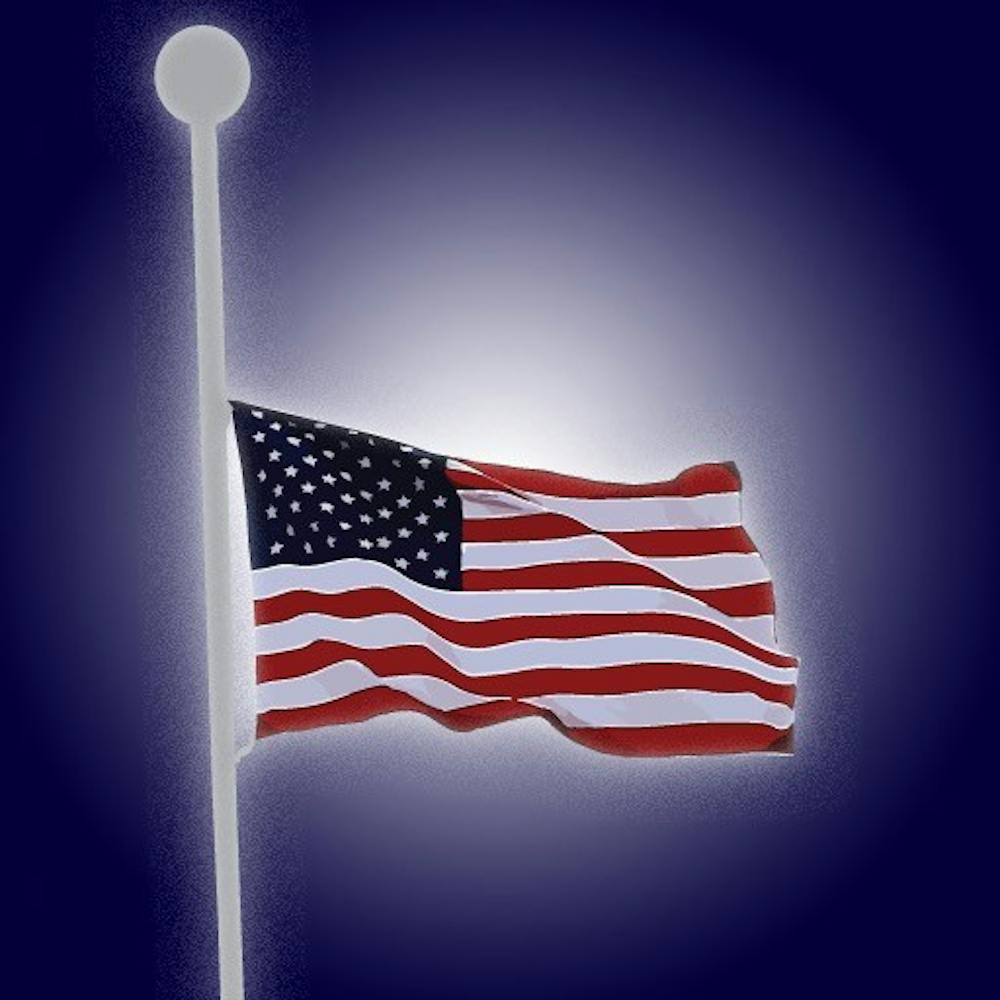Ask anyone over the age of 25 where they were on Sept. 11, 2001, and they could tell you without skipping a beat.
John Rothgeb, a professor of political science, was working out on the elliptical in his basement when his TV suddenly switched to footage of New York.
“My first thought was, ‘Why do they have a plane flying around in that part of the city where they have so many tall buildings?’” Rothgeb said.
Kaara Peterson, a native New Yorker and associate professor of English, was teaching a class at the University of Vermont when the attack occurred. She found out about an hour later after the class had dismissed.
“The great irony about all of that is later that afternoon I was supposed to hold a discussion about tragedy as a genre,” Peterson said. “Given the subject matter, I said, ‘Maybe we shouldn’t do this today.’”
The way in which many people have such a distinct memory of that morning, even after two decades, demonstrates the intense emotional impact the attacks had on all Americans.
“For the first couple of days, the predominant mood was shock and sorrow and fear,” Peterson said. “After people had time to process what had happened, people pulled together in support of the rescue efforts and that kind of unified the country.”
Twenty years later, the first generation with no memory of the 9/11 attacks is attending college.
Delaney Towers is a sophomore social studies education major. Her father was a first responder on 9/11.
“9/11 was never just a day for me,” said Towers. “Even though I wasn’t alive when it happened, it was one of the worst days of my parents’ lives, and revisiting that [each year] is super scary for them.”
The words “Never forget” often accompany 9/11, but what will happen when the only memories left are secondhand?
Ron Becker, a professor of media and communication, said although some historical fading is inevitable, the role of the media will aid in preserving the memory of 9/11.
Enjoy what you're reading?
Signup for our newsletter
“We have all of those images, and our relationship to the past is a little different now because of media technologies,” Becker said. “The way in which it will recede into history will be different than, say, Pearl Harbor.”
Towers said it’s important to remember 9/11 each year not only to honor those who lost their lives, but those who saved the lives of others.
“It's a sad day, but it's also a day that shows what a great person [my father] is and a day that I’m proud to be his daughter,” Towers said.
Miami University has taken measures to continue to commemorate 9/11, even though most of its students are too young to remember it. The university will hold a moment of silence at 8:46 a.m., the time the first plane hit the World Trade Center. Miami has several other events planned, including a memorial display at the Farmer School of Business.
Current Miami students entered their childhood in the midst of the War on Terror and exited it in the wake of a global pandemic: two generation-defining moments.
For baby boomers, that unforgettable “Where were you?” moment was the JFK assassination. For those born after 9/11, it may likely be the announcement of COVID-19 lockdowns.
Towers said the way her parents’ generation remembers their whereabouts on 9/11, she can recall with precision where she was on March 13 when her high school switched to remote learning: at her dance studio sitting with friends.
“Every person has a moment that they remember exactly where they were on a given day,” Towers said. “There are just moments in our history that stick with you forever.”
Wide-scale tragedies can come in many shapes and forms, but the thing that remains the same is that they are life-altering events.
“I think it's because those are generational traumas that we have to live with, and will affect how we live our everyday lives,” Towers said.
For those born after 9/11, airport security, islamophobia and diligent government surveillance have been lifelong realities. Towers said she wouldn’t be surprised if people born after 2020 grow up in a world where things like mask-wearing and rigorous sanitization are parts of everyday life.
Peterson said there are caveats to comparing COVID-19 and 9/11, but that similarities do exist.
“It's certainly similar in terms of waking us up to the fact that there are things happening outside our borders that we need to pay attention to,” Peterson said, “Whether we like it or not.”
Becker said both tragedies proved the Unitied States isn’t as impermeable as was previously thought.
“[They both] seemed to represent how vulnerable we could be,” Becker said. “We’re not this undisputed superpower, we’re not an unproblematic beacon of freedom, and I think for the next 20 or 30 years we’re gonna have to figure out how to grapple with that reality and navigate as a nation.”




